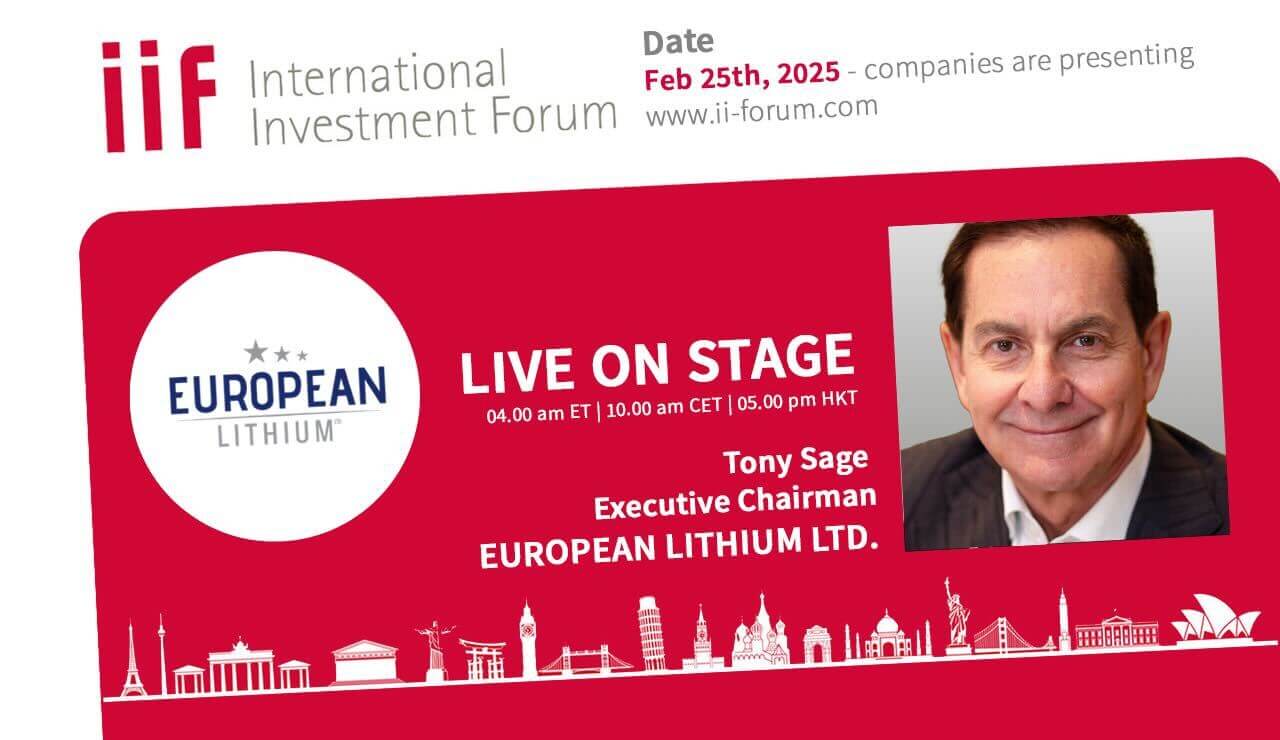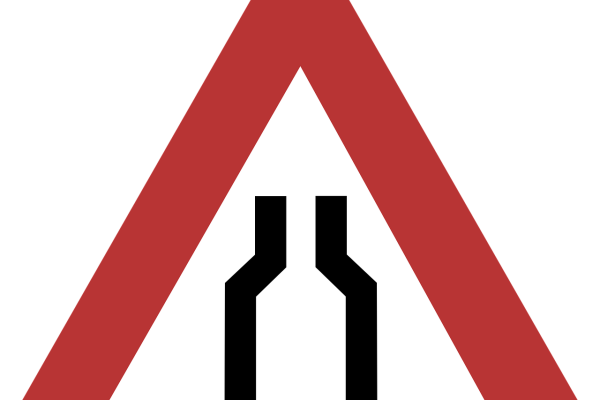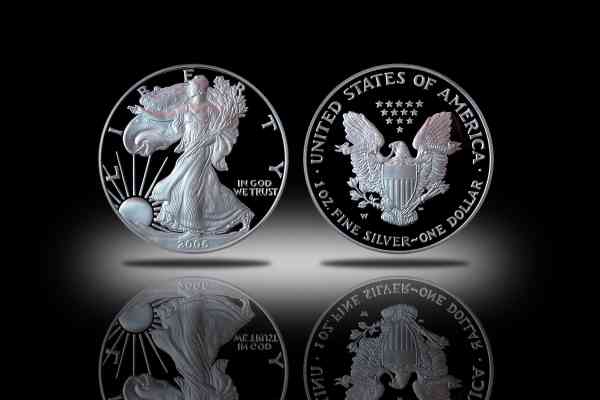February 6th, 2025 | 07:10 CET
Siemens Energy, European Lithium, BYD – Lithium: short-term pressure, long-term opportunities
Even though the lithium price is at rock bottom, many indicators are signalling a long-term recovery of the lithium market. Demand for lithium-ion batteries is being fueled by the increased use of electric vehicles and the expansion of renewable energies. At the same time, producers are already reacting with project delays and mine closures, which could create short-term supply bottlenecks. Given that the EU sources 79% of its lithium from China, a possible trade war should prompt the EU to seek alternatives. Analysts expect a stabilization by 2026 at the latest as the energy transition is progressing. Those who believe in the further electrification of the world should invest now, as the long-term prospects are promising.
time to read: 5 minutes
|
Author:
Armin Schulz
ISIN:
SIEMENS ENERGY AG NA O.N. | DE000ENER6Y0 , EUROPEAN LITHIUM LTD | AU000000EUR7 , BYD CO. LTD H YC 1 | CNE100000296
Table of contents:

"[...] China's dominance is one of the reasons why we are so heavily involved in the tungsten market. Here, around 85% of production is in Chinese hands. [...]" Dr. Thomas Gutschlag, CEO, Deutsche Rohstoff AG
Author
Armin Schulz
Born in Mönchengladbach, he studied business administration in the Netherlands. In the course of his studies he came into contact with the stock exchange for the first time. He has more than 25 years of experience in stock market business.
Tag cloud
Shares cloud
Siemens Energy – Strong preliminary figures
Siemens Energy starts the financial year 2025 with surprisingly strong preliminary figures. In the first quarter, sales rose by 18.4% to EUR 8.94 billion, while free cash flow before taxes, at EUR 1.53 billion, marked a significant increase compared to the previous year's minus of EUR 283 million. The Gas Services (+24.6% order intake) and Grid Technologies (+24% sales) segments performed particularly well. Even the wind-damaged subsidiary Siemens Gamesa improved its cash flow from -EUR 1.15 billion to -EUR 568 million. The Company announced that it would revise its annual free cash flow forecast of up to EUR 1 billion upwards in February – a clear vote of confidence.
The stock has been extremely volatile of late: After a 22% drop due to concerns about the current demand for AI triggered by China's DeepSeek AI, it recovered partially thanks to the quarterly figures. Analysts at Deutsche Bank see "attractive entry opportunities" here. However, political risks are weighing on sentiment: US President Trump's announcements to stop offshore wind projects could slow Siemens Gamesa. At the same time, the discussion about US LNG exports and gas as a "bridge technology" for decarbonization is driving the valuation – despite doubts about the climate footprint of natural gas.
In the long term, Siemens Energy is positioned as a hybrid: on the one hand, Grid Technologies benefit from the global grid expansion, while on the other, the Company is focusing on gas turbines for the US energy transition. The challenge remains the wind division. Although Gamesa has reduced its losses, the pressure from Chinese manufacturers and Trump's regulatory policy remains high. For investors, the valuation with a price-to-earnings ratio of 21 is significantly more favorable than the competitor GE Vernova with 51. Nevertheless, the high expectations already seem to be priced into the share, which is currently trading at EUR 56.08.
European Lithium – An exciting lithium player
European Lithium demonstrates strategic clout in its latest quarterly activities report: With the complete acquisition of the Leinster project in Ireland, the Company is strengthening its portfolio of critical raw materials. In addition, the appointment of mining veteran George Karageorge as head of exploration should improve operational efficiency. After the merger with Sizzle Acquisition, which resulted in the NASDAQ-listed Critical Metals Corp (CRML), the flagship Wolfsberg project in Austria was incorporated there. Since then, European Lithium has held around 74% of the shares in CRML. At the same time, a cooperation agreement was signed with Hatch Ltd. to construct a Saudi Arabian refinery. This step should enable the production of up to 20,000 tons of battery-grade lithium hydroxide per year.
The Wolfsberg lithium project is making rapid progress: the exemption from the environmental impact assessment is accelerating planning, and the planning for the energy supply corridor has already been completed. European Lithium is also involved in the Tanbreez project in Greenland through CRML. There, 16 confirmation drillings delivered excellent results: one drilling reached an average of 4,722.51 ppm rare earth oxides, of which 27% were heavy variants (HREO) – a plus for high-tech industries. CRML now holds 49.5% of the mine, with an option for further shares. In light of the EU Raw Materials Act, which aims to achieve 10% domestic production by 2030, these projects are becoming increasingly geopolitically relevant – especially since Europe currently imports 79% of its lithium and 100% of its rare earths.
European Lithium's stake in Critical Metals is very valuable. At a current CRML price of USD 8.45, the value of the 66.4 million shares held amounts to over USD 561 million. This valuation underscores the markets' confidence in the projects. With the Wolfsberg mine as a regional supply pillar and the planned Saudi Arabian refinery, the Company is simultaneously addressing local supply chains and global scaling. In addition to the projects mentioned, the Company also owns two lithium projects in Ukraine that could become interesting once the war ends. After doubling in value at the beginning of the year, the stock entered a consolidation phase. Currently, the stock is trading at AUD 0.064, corresponding to a market capitalization of around AUD 92.5 million.

BYD – Still growing
BYD started 2025 with mixed signals: January sales of 300,538 new energy vehicles (NEVs) fell by 42% month-on-month due to China's seasonal lull around the Lunar New Year. However, year-on-year, there was a significant increase of 49% compared to January 2024. Of particular note in the figures are foreign sales, which rose by 83% to 66,336 units, underscoring the fact that expansion is continuing. Sales of plug-in hybrids (PHEVs) jumped 79% to 171,069 units, while sales of pure electric vehicles (BEVs) increased by 19% to 125,377.
In addition to pure sales figures, BYD impresses with a wide range of products: from the low-priced Seagull EV (under USD 10,000) to the luxury brand Yangwang, the Company covers all segments. The best-selling "Ocean" and "Dynasty" series alone accounted for over 278,000 sales in January. At the same time, the Company is pushing ahead with its technology offensive: BYD plans to integrate autonomous driving functions such as "Navigate on Autopilot" (NOA) into all models by the end of 2025. Partnerships with Huawei and DJI are designed to strengthen software, infotainment, and driver assistance systems – a crucial step as competition increasingly shifts to digital ecosystems.
While Western automakers are struggling under US tariff threats, BYD's internationalization strategy is bearing fruit. After opening a plant in Thailand in 2024, factories in Indonesia, Mexico, and Hungary are to follow, bypassing trade barriers through local production. In Europe, the Company is targeting market share with models such as the Atto 2 compact SUV. Despite EU tariffs on Chinese EVs – which BYD is fighting in court together with Tesla and others – sales of commercial vehicles in January exploded by 763%. At a current share price of around EUR 35.03 and a forecast annual production of 6 million units, despite BYD's challenges, it benefits from the megatrend of electrification.
Despite the currently low price, the lithium market has a lot of potential in the long term, as electric mobility and renewable energies are driving demand. Siemens Energy has surprised with its preliminary quarterly figures and even wants to raise its forecast. European Lithium specializes in the acquisition and cooperation in the field of critical raw materials. Europe is heavily dependent on China for lithium and rare earths. BYD has shown sales growth in January despite seasonal fluctuations. There is also noticeable growth in international markets.
Conflict of interest
Pursuant to §85 of the German Securities Trading Act (WpHG), we point out that Apaton Finance GmbH as well as partners, authors or employees of Apaton Finance GmbH (hereinafter referred to as "Relevant Persons") may hold shares or other financial instruments of the aforementioned companies in the future or may bet on rising or falling prices and thus a conflict of interest may arise in the future. The Relevant Persons reserve the right to buy or sell shares or other financial instruments of the Company at any time (hereinafter each a "Transaction"). Transactions may, under certain circumstances, influence the respective price of the shares or other financial instruments of the Company.
In addition, Apaton Finance GmbH is active in the context of the preparation and publication of the reporting in paid contractual relationships.
For this reason, there is a concrete conflict of interest.
The above information on existing conflicts of interest applies to all types and forms of publication used by Apaton Finance GmbH for publications on companies.
Risk notice
Apaton Finance GmbH offers editors, agencies and companies the opportunity to publish commentaries, interviews, summaries, news and the like on news.financial. These contents are exclusively for the information of the readers and do not represent any call to action or recommendations, neither explicitly nor implicitly they are to be understood as an assurance of possible price developments. The contents do not replace individual expert investment advice and do not constitute an offer to sell the discussed share(s) or other financial instruments, nor an invitation to buy or sell such.
The content is expressly not a financial analysis, but a journalistic or advertising text. Readers or users who make investment decisions or carry out transactions on the basis of the information provided here do so entirely at their own risk. No contractual relationship is established between Apaton Finance GmbH and its readers or the users of its offers, as our information only refers to the company and not to the investment decision of the reader or user.
The acquisition of financial instruments involves high risks, which can lead to the total loss of the invested capital. The information published by Apaton Finance GmbH and its authors is based on careful research. Nevertheless, no liability is assumed for financial losses or a content-related guarantee for the topicality, correctness, appropriateness and completeness of the content provided here. Please also note our Terms of use.




